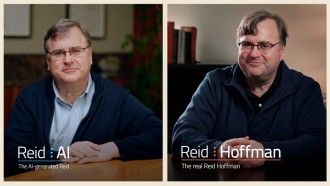In an article published in The BMJ, pediatrician Tamsin Holland Brown and her daughters, Lilac and Marigold, argue that the traditional practice of giving children coal as a punishment during the holiday season should be ended due to its negative environmental and health impacts.
No More Coal for Christmas
It is not uncommon for people to put small amounts of coal in socks or other small spaces as a practical joke or prank. The tradition of giving coal as a punishment or gift dates back to the 19th century when coal was a standard fuel used for heating and cooking.
However, in modern times, the use of coal as a fuel has declined due to its negative environmental impacts and the availability of cleaner, more sustainable alternatives. As a result, giving coal as a gift or punishment is now seen mainly as a joke or prank.
Read Also: Hypothermia Among Elderlies Worsen, Health Officials Reveal; Tips to Keep Warm Without Using Heaters
The authors note that burning coal, a non-renewable fossil fuel, contributes to the climate crisis and can have negative effects on air quality, which can harm children's health. They also think that giving children coal as a punishment could be bad for their mental health.
The authors argue that cultivating friendships and relationships across generations "might combat anxiety" better than a lump of coal because the COVID-19 pandemic, war, cost of living crises, and climate disaster have already increased concerns.
Negative Effects of Coal
The Union of Concerned Scientists tells us that coal harms the environment and human health because it releases pollutants when burned. These pollutants can negatively impact air quality, water quality, and public health.
When coal is burned, it releases a number of harmful substances into the air, including carbon dioxide (CO2), sulfur dioxide (SO2), and nitrogen oxides (NOx). These substances contribute to air pollution and can have negative impacts on human health, including respiratory and cardiovascular problems.
In addition, coal ash, which is the solid waste left over after coal is burned, can contain toxic heavy metals that can leach into the soil and water, posing a risk to human health and the environment.
As alternatives to coal, Phys.org reports that the authors suggest giving children recycled or upcycled gifts, plant-based foods, experiences in nature such as walks or bike rides, inspiring novels, or even a stick insect. They also make the case for rewarding "naughtiness," citing eco-activist Greta Thunberg's belief that children "can't save the world by playing by the rules."
Coal Rennaisance
Back in October, German Chancellor Olaf Scholz told the parliament that the ongoing conflict between Russia and Ukraine must not result in a "worldwide renaissance" of coal energy plants.
Since Russia is cutting off gas supplies, Germany thought about opening coal plants in June and did so to avoid an energy crisis in the winter.
The government has recently approved the reactivation of several coal and oil-fueled power plants, and environmental activists advise that by burning more fossil fuels, Germany risks falling short of its climate goals.
Stay posted here at Tech Times.
Related Article: Holiday Gadget Trends For 2022: Top 6 Christmas Gift Ideas for Women






